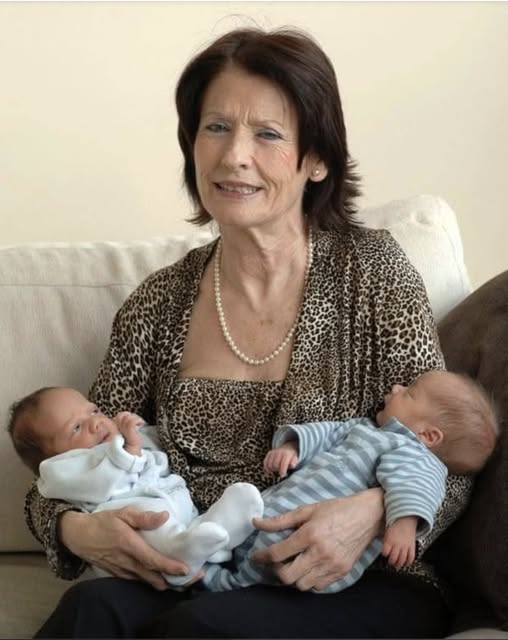Motherhood is a timeless and profound responsibility — one that shapes lives in unpredictable ways.
Becoming a mother can be a surprising transformation or the joyful result of years of longing. Regardless of how or when it happens, motherhood is a true gift. Some women begin their journey early in life, others later, and some face challenges that make biological motherhood difficult or impossible. There’s no single path to becoming a parent — each journey is valid and deserves celebration.
One such extraordinary story is that of Maria del Carmen Bousada de Lara, who made global headlines when she became the world’s oldest mother. In 2006, Maria, from Cádiz, Spain, gave birth to healthy twin boys just days before turning 67. Her decision, however, sparked both admiration and controversy.
A retired store worker, Maria reportedly sold her home to fund IVF treatments in California, where she allegedly claimed to be younger than she was. Her dream of becoming a mother was powerful, and despite social expectations and criticism — even from her own family — she believed every woman should have the right to decide when to have children.
Maria’s family was stunned by her pregnancy announcement. “They thought I was joking,” she once said. But her motivation was clear: motherhood had always been her dream, and she was willing to take risks to achieve it. Tragically, just months after giving birth to her sons, Christian and Pau, Maria was diagnosed with ovarian cancer. She passed away in 2009, having only a few short years with the children she had longed for.
In her final interviews, Maria acknowledged the challenges she faced and the criticism she endured. “Maybe my choices weren’t the best,” she said, “but it was the only way to fulfill my dream.” Her family stepped in to raise her boys after her passing, and loved ones — including neighbors — confirmed the children are healthy and well cared for.
Maria’s story stirs deep reflection on the personal choices women make around motherhood, and the societal pressures that can shape those decisions. While advances in fertility treatments now offer new opportunities for women to become mothers later in life, they also raise complex ethical questions. Some worry that older parents may not have enough time with their children. Others argue that age shouldn’t define a person’s ability to love, raise, or nurture a child.
What Maria’s journey truly highlights is the resilience of the human spirit — the drive to pursue a dream against all odds. Her story is not just about late motherhood, but about courage, determination, and the importance of support from those around us. It reminds us that family can take many forms, and that love, not age, is what truly defines a parent.
Maria del Carmen Bousada de Lara’s legacy continues to spark conversations about choice, timing, and the evolving face of motherhood. While opinions may differ, her unwavering desire to become a mother deserves empathy and respect.
What do you think about women choosing to have children later in life? Should age define parenthood?
Share your thoughts in the comments and don’t forget to pass this story along — because every path to motherhood is worth talking about.
Rest in peace, Maria.
